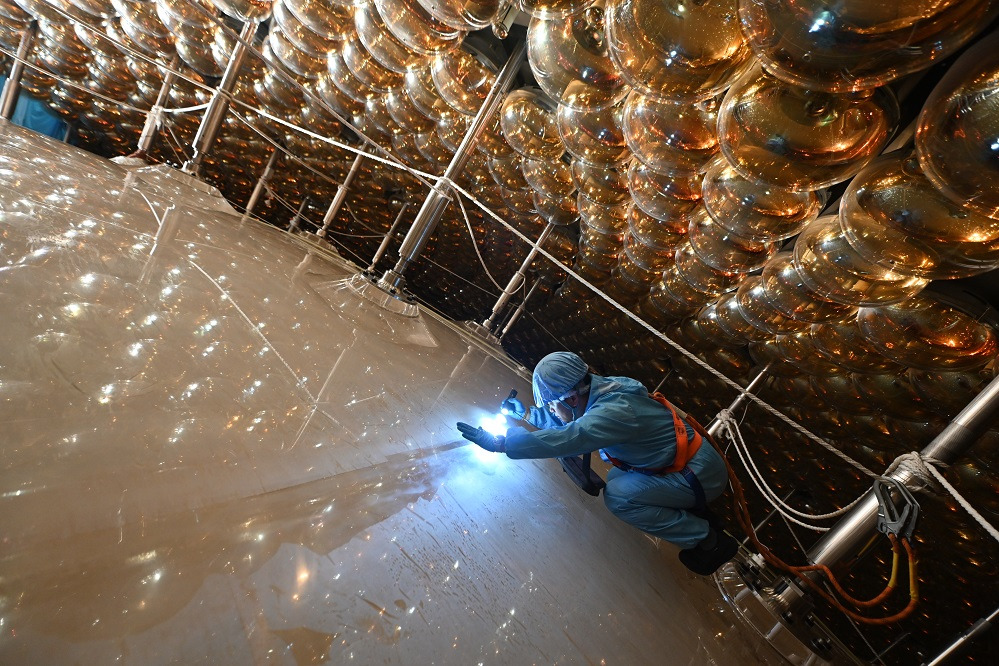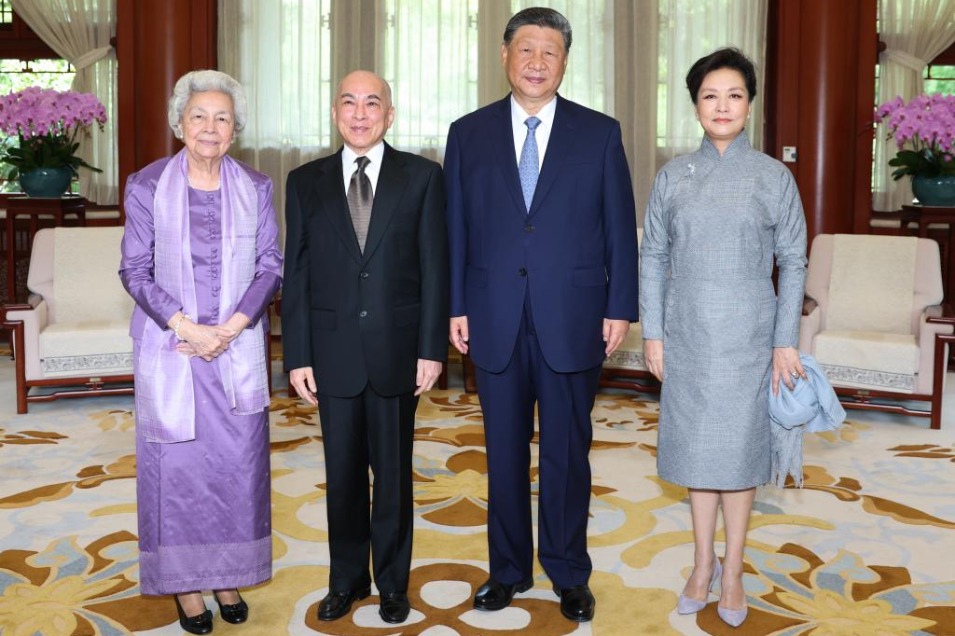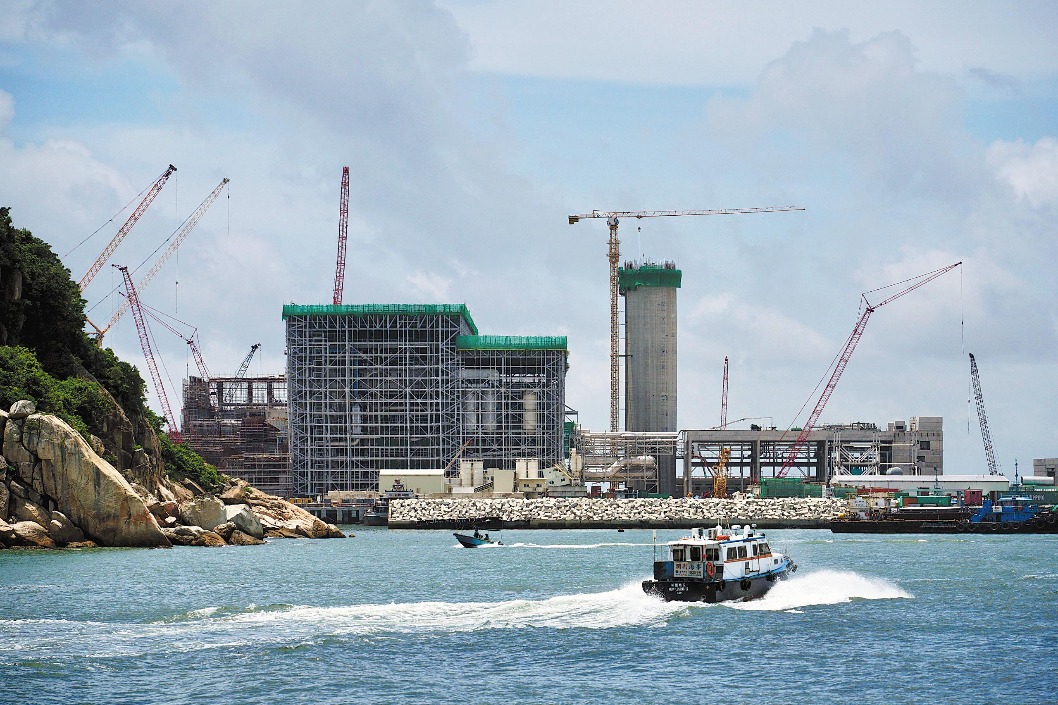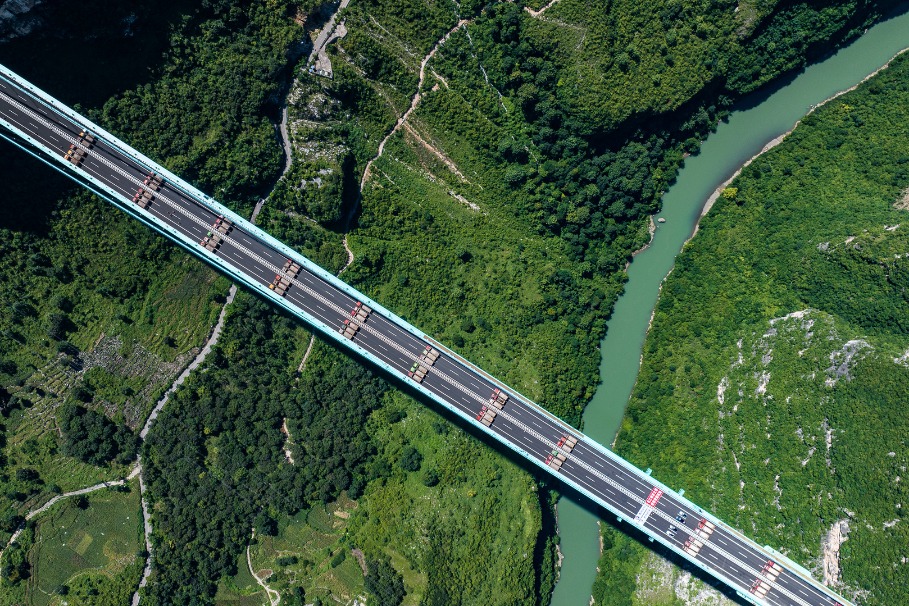Exhibitions across Strait memorialize war victory
Downplay by island authorities betrays historical memory, further reveals separatist stance

Editor's note: The Taiwan question is a key focus for China and the international community. China Daily is publishing a series of reports to track hot Taiwan-related topics and address disinformation from the Democratic Progressive Party administration.
A photo exhibition opened in Taipei on Friday to commemorate the 80th anniversary of the victory in the Chinese People's War of Resistance Against Japanese Aggression (1931-45) and Taiwan's restoration to China.
Kuan Chung-ming, the exhibition's curator and former president of Taiwan University, said at the opening ceremony that the war of resistance against Japan was crucial for the survival of the Chinese nation and is a historical memory shared by all Chinese people.
It is worthy of joint commemoration by both sides of the Taiwan Strait, yet the Democratic Progressive Party authorities in Taiwan have not held any large-scale commemorative events, he said.
"If the DPP won't do it, we'll do it ourselves, and we will pass on this historical memory," Kuan said, adding that the monthlong exhibition aims to encourage more people to participate and help preserve this important history.
On Aug 15, 1945, Japan announced its unconditional surrender, 14 years after it invaded Northeast China and eight years after its full-scale invasion of China. Around the date this year, people on both the Chinese mainland and in Taiwan are commemorating the important historical events through exhibitions, seminars, visits and art displays.
Shared history
In July 1894, Japan launched a war of aggression against China. In April 1895, the defeated Qing Dynasty (1644-1911) government was forced to cede Taiwan and the Penghu Islands to Japan.
After Japan occupied Taiwan in 1895, the people of Taiwan engaged in relentless resistance. Over 50,000 of these people joined mainland resistance efforts during World War II, motivated by their mission to save the motherland and to save Taiwan.
On Oct 25, 1945, the ceremony to accept Japan's surrender in the Taiwan province of the China war theater of the Allied powers was held in Taipei. From that point on, China recovered Taiwan.
Documents like the 1943 Cairo Declaration and the 1945 Potsdam Proclamation mandated Taiwan's return to China. Japan surrendered under the terms of these documents, and Taiwan was officially restored to China on Oct 25, 1945.
Ren Dongmei, a research fellow at the Institute of Taiwan Studies of the Chinese Academy of Social Sciences, said Taiwan's restoration, which was celebrated by local residents as the end of the island's colonial oppression, confirmed that Taiwan is a part of China, and bonds people on the two sides of the Strait as members of a community with common interests and a shared future.
Wu Yongping, director at the Institute for Taiwan Studies at Tsinghua University, said Taiwan's restoration to China holds multifaceted significance, as its return healed the "deep wound" in the nation's history that Taiwan became a Japanese colony when China was poor and weak.
"With Taiwan's restoration, China once again became a unified and complete country. This moment was crucial for the development of modern China," Wu said.
The return was even more meaningful to the people of Taiwan, who were treated as second-class citizens — discriminated against and oppressed under 50 years of Japanese colonial rule, so many longed to return to the motherland, he said.
So when the Chinese Kuomintang government came to take over Taiwan from the Japanese colonial power, Taiwan people welcomed them with great excitement, Wu said.
"Men, women, young and old, all dressed nicely to greet their compatriots from the motherland."
Liu Xiangping, head of the Institute of Taiwan Studies at Nanjing University, said, "The victory in the war and Taiwan's restoration to China powerfully safeguarded our sovereignty and territorial integrity, putting an end to a humiliating history of enslavement by foreign aggressors."
He said that the Taiwan question arose from the past decline and turmoil of the Chinese nation, and looking at it from today's perspective, the strength of the Chinese nation is the strongest guarantee for safeguarding national sovereignty and territorial integrity.
Taiwan compatriots were an important part of the war of resistance against Japanese aggression, and Taiwan's restoration was a crucial outcome of the victory of the war, Liu said, adding that "Forgetting history is a betrayal".
Betraying historical facts
In August, the Taiwan authorities said they had banned government officials from attending September's military parade in Beijing to mark the victory in the Chinese People's War of Resistance Against Japanese Aggression, along with former senior "defense, intelligence and diplomatic" officials. The penalties for violating this ban include the revocation of pensions, a move that has stirred criticism across the Taiwan Strait.
Critics have also condemned Taiwan's leader, Lai Ching-te, for not organizing events to commemorate the victory, accusing Lai of propagating an erroneous view of World War II history by beautifying Japan's colonial past in Taiwan and ignoring the sacrifices made by the Chinese people.
Former Taiwan leader Ma Yingjeou expressed anger and disappointment, saying that Lai's description of the war's victory as merely "the end of World War II" in a post on his Facebook page on Friday downplayed Japan's wartime atrocities.
Lai, who pandered to Japan and forgot the humiliation and sacrifices of the Chinese people, is unfit for leadership in Taiwan, Ma said, adding that "historical truths such as the brutal invasion by Japan and the countless sacrifices made by the Chinese should not be erased or distorted".
He urged Lai to remember those who sacrificed their lives resisting Japanese invaders, including Taiwan people who died during Japan's colonial rule, and warned that without this acknowledgment, Lai's talk of "Taiwan values" would be seen as mere political maneuvering devoid of genuine concern for the people.
Zhu Fenglian, spokeswoman for the Taiwan Affairs Office of the State Council, condemned Lai for a complete abandonment of the national stance and the deliberate disregard for the historical facts of the war.
She said that Lai's rhetoric in his Facebook post supported a false narrative of "democracy versus authoritarianism" and promotes separatist "Taiwan independence" ideology, which ultimately aims to achieve "independence" through military means and foreign support.
Zhu warned Lai that any attempt to distort this history would be in vain, any actions challenging the post-war international order would be self-defeating, and any schemes to divide the nation were delusional.
She expressed hope that compatriots on both sides of the Taiwan Strait would remember history, honor the martyrs, uphold national righteousness, safeguard the fruits of victory and firmly oppose "Taiwan independence" and external interference.
Sung Ping-chung, executive deputy chief editor of Taiwan's Meihua Media News, said some politicians in Taiwan blindly idolize Japan because they were deliberately covering up the war crimes Japanese invaders committed during the time they colonized Taiwan.
This year marks the 110th anniversary of the 1915 Tapani Massacre, where in the Yujing district of the city of Tainan, the Japanese invaders killed people from 8 to 80 years old.
"Why is no one talking about this at all? This is a terrible situation," Sung said.
"We just need to make sure everyone knows about it, and people can then form their own opinion. I don't believe anyone could visit this museum and not feel moved," he said after visiting the Battle of Changde Memorial Museum in Hunan province earlier this month.



Today's Top News
- A misjudgment of situation in the first place, destabilizing AUKUS deal may bite the dust: China Daily editorial
- Welcome would be welcomed if sincere: China Daily editorial
- Xi and his wife meet Cambodian King, Queen Mother
- Xi meets Russian State Duma chairman
- Parade a tribute to Chinese people's sacrifices in WWII
- SCO will strongly uphold multilateralism






























